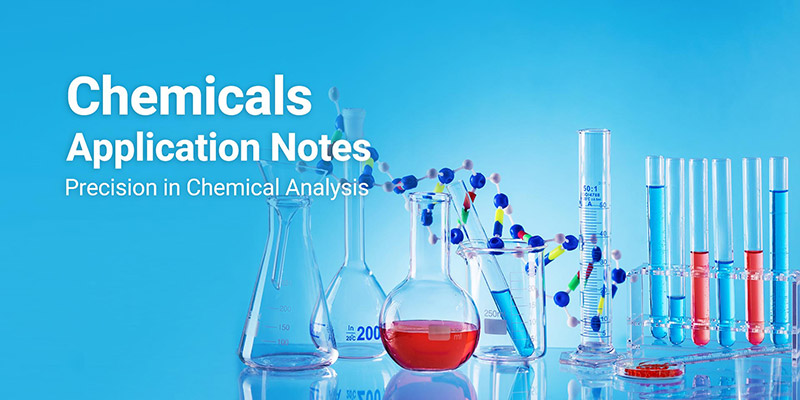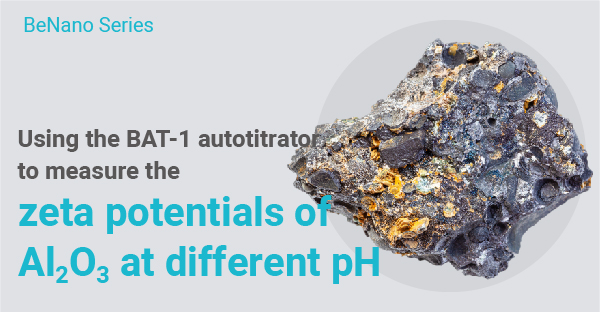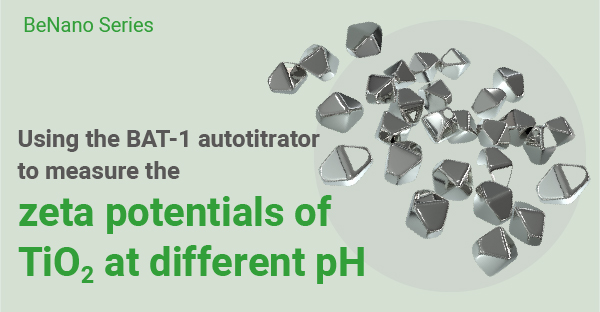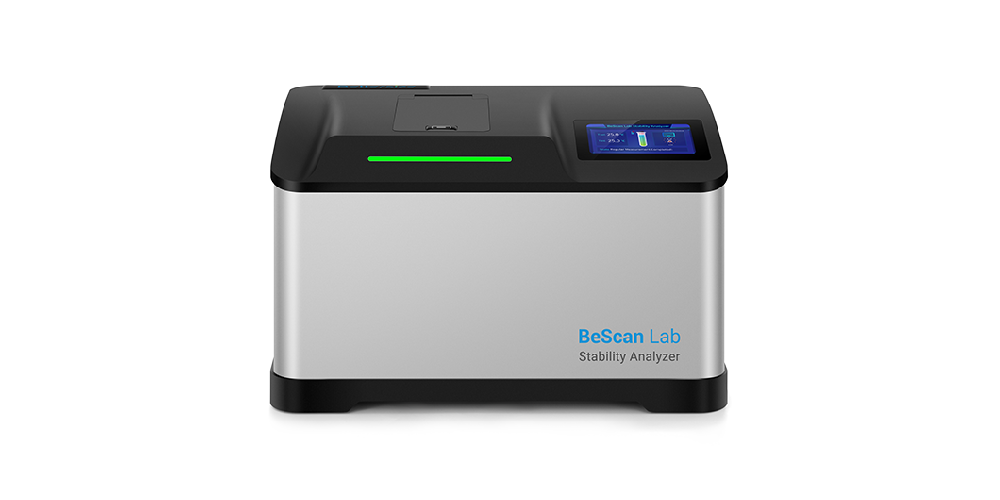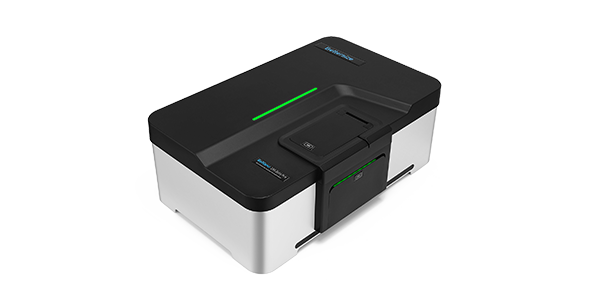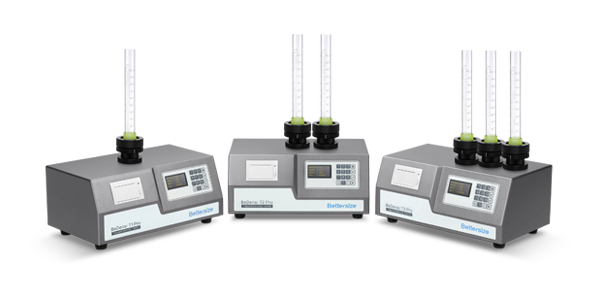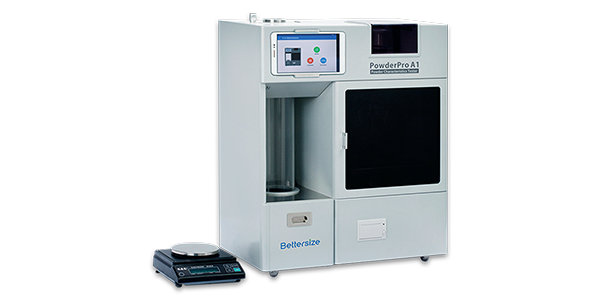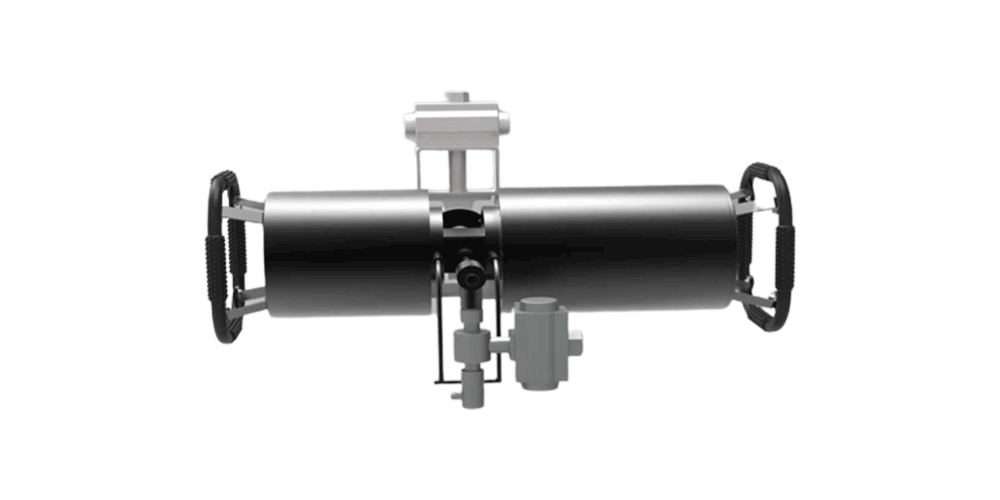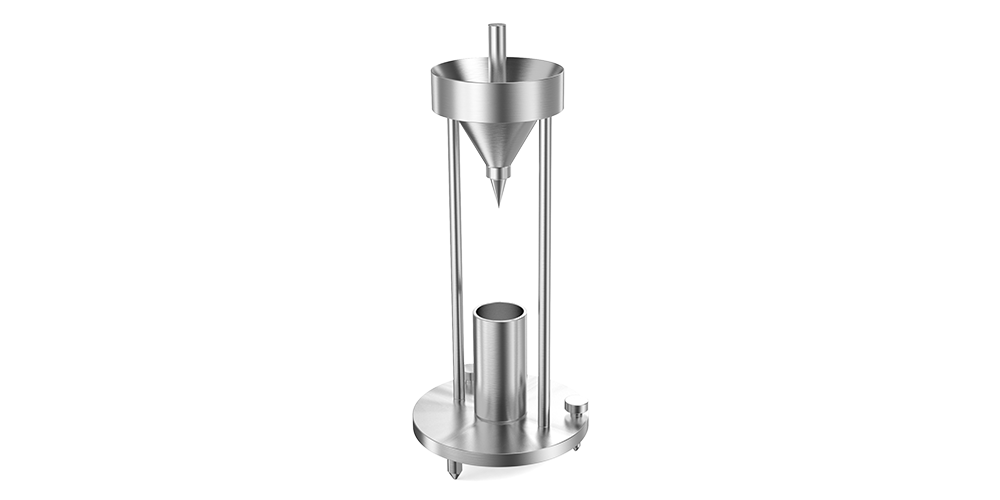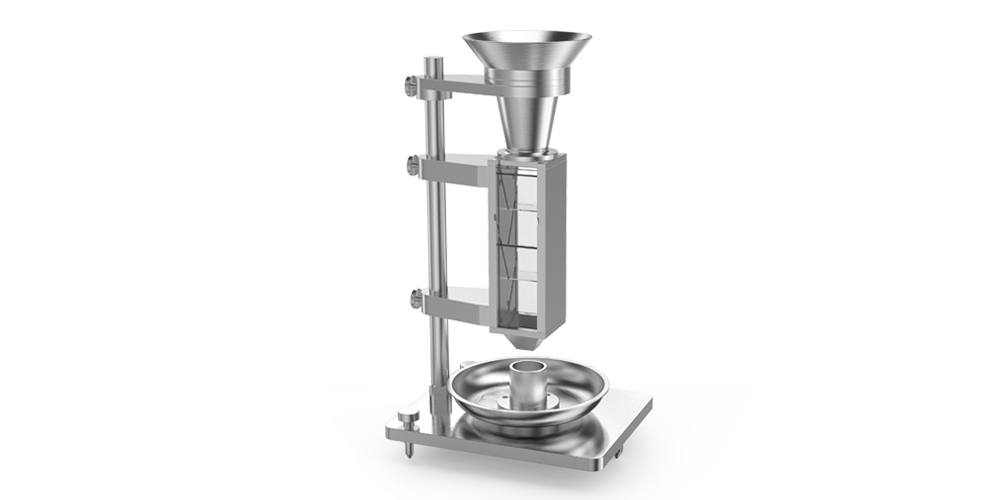Chemicals
Instruments provided by Bettersize are widely used in the analyses of particle size, shape analyses, and powder characteristics of chemicals for research and quality control.
In order to develop and optimize the production of chemical materials, a series of the physical properties of chemicals must be monitored, including particle size, particle shape, and powder characteristics.
Polymers and plastics comprise about the largest sector of the chemical industry's output worldwide. The key products are polyethylene, polypropylene, polyvinyl chloride, polyethylene terephthalate, polystyrene, and polycarbonate. Measurement of particle size for these materials plays a very important role during their production and R&D.
The major markets for plastics are packaging, followed by home construction, containers, appliances, pipe, transportation, toys, and games.
● The largest-volume polymer product, polyethylene (PE), is used mainly in packaging films, milk bottles, containers, and pipes.
● Polyvinyl chloride (PVC), another large-volume product, is principally used to make piping for construction markets as well as siding, transportation and packaging materials.
● Polypropylene (PP), similar in volume to PVC, is used in markets ranging from packaging, appliances, and containers to clothing and carpeting.
● Polystyrene (PS), another large-volume plastic, is used principally for appliances, packaging, and especially as a safety feature for in-car protection to reduce the consequences of a crash.
● The leading man-made fibers include polyester, nylon, polypropylene, and acrylics, with applications including apparel, home furnishings, and other industrial and consumer uses.
Other chemical products include:
● synthetic rubber, surfactants, dyes and pigments, turpentine, resins, carbon black, explosives, and rubber products.
● Inorganic chemicals include salt, caustic soda, soda ash, acids (such as nitric acid, phosphoric acid, and sulfuric acid) and titanium dioxide.
● Fertilizers are the smallest category, including phosphates, ammonia, and potash chemicals.
Process equipment used to manufacture plastics includes injection molds, compression molds, extruders, and rotational molds. Common to all these processes is that a pellet or powder is used as the starting material. The characteristics of the feed material must meet certain criteria, such as melting point. In addition, chemical composition, flexural strength, compressive strength, impact resistance, density, chemical resistance, and tensile strength give the resulting article its characteristics. The particle size of the pellets contributes significantly to processibility of the polymer. Flowability from the hopper and melting rate when heated, has a direct effect on process speed. Particles (pellets) are generally produced in the range of 200 to 2,000 microns for transport and application.
In order to promote the development of the industry , better particle size measurement methods will be needed. So what kind of particle size analysis methods will be better? The instruments provided by Bettersize can assist in the development of chemicals in the following aspects:
● Measuring the particle size, particle shape, powder characteristics and other properties of materials
● Measuring benchmark products to ensure their performance and stability
● Controlling quality to ensure compliance with regulatory standards
● Developing suitable packaging materials
Citations
- Bettersizer 2600
Functional redundancy as an indicator for evaluating functional diversity of macrobenthos under the mussel raft farm near Gouqi Island
DOI: 10.1016/j.aquaculture.2023.740024 Read ArticleZhejiang Ocean University | 2024Biological traits analysis (BTA) helps to evaluate the effects of different environmental variables on the traits-based functional composition of macrobenthos. However, research on functional traits of macrobenthos under mussel farming is limited. We investigated the spatial and temporal response of the benthic system in terms of taxonomic and functional diversity to environmental variables of farming and natural stressors resulting from suspended mussel farming near Gouqi Island of eastern China Sea. The functional traits of macrobenthic assemblages under mussel farming were characterized by “medium adult body size”, “vermiform body form”, “high flexibility”, “infauna”, “semi-motile”, “gonochoristic”, “surface deposit-feeders”, “carnivores”, “semi-motile burrowers”, and “tube-dwellers”. Functional redundancy was stable in response to mussel farming stresses among seasons, whereas species diversity showed efficient to evaluate natural variables. Functional diversity was significantly affected by farming stressors rather than natural variables, Further analysis using multivariate methods together with continuous monitoring were highlighted to evaluate the impacts of mussel farming. Our results reinforce the importance of macrobenthic species and functional traits analysis to evaluate human stresses driven impacts in offshore ecosystems. By analysing the environmental variables with different sources, independently, we concluded the main effects of human pressures on macrobenthic community. Such distinction could be particularly effective to isolate variable environmental descriptors and evaluate their effects on functional diversity, making the current approach promising for the evaluation of ecological effects of anthropogenic stressors in aquaculture areas. - Bettersizer 2600
Degradation characteristics and utilization strategies of a covalent bonded resin-based solid amine during capturing CO2 from flue gas
DOI: 10.1016/j.seppur.2023.125621 Read ArticleChina University of Petroleum | 2024In this study, various types of degradation as well as attrition which are possibly encountered in a circulating fluidized bed temperature swing adsorption (CFB-TSA) process, were conducted experimentally to evaluate the stability of a resin-based solid amine sorbent. Other characterizations methods, such as elemental analysis (EA), Fourier transform infrared spectroscopy (FTIR) etc. were applied to further reveal the degradation mechanisms. The results showed that thermal degradation occurs from 140–160 °C due to the decomposition of amine group. The CO2-induced degradation occurs from a higher temperature of 160–180 °C accompanied by the production of urea. Hydrothermal stability is good below 130 °C, but the ionic impurities in steam crystalized on particle surface can accelerate the degradation. Oxidative degradation is the most harmful, which starts at a lower temperature of 70–80 °C with the formation of aldehyde. The existence of H2O in atmosphere can alleviate the oxidative and CO2-induced degradations. The employed sorbent has a very low attrition index of 0.05, which is 1–2 orders lower than typical commercial fluidized bed catalysts. Based on the results of stability evaluation, some design suggestions for proper utilization of this sorbent or other similar resin-based sorbents have been provided in an industrial CFB-TSA process.
- Bettersizer 2600
De-branching of starch molecules enhanced the complexation with chitosan and its potential utilization for delivering hydrophobic compounds
DOI: 10.1016/j.foodhyd.2023.109498 Read ArticleShihezi University | 2024The current study aimed to prepare the complexes between debranched-waxy corn starch and chitosan polymers (DBS-CS), and then investigated their corresponding structural characteristics, rheological property and potent application in Pickering emulsion. The results indicated that the existence of chitosan significantly inhibited starch short-range molecular rearrangement for all DBS-CS samples, which was manipulated by both debranching treatment and chitosan content. Interestingly, this is the first study to reveal that the outstanding peak at 1.8 ppm in 1H NMR spectrum for sample DBS-CS was gradually shifted towards a lower-field region following an increased chitosan content. Moreover, the debranching treatment shifted the crystallinity pattern from A-type to B-type and the relative crystallinity of DBS-CS decreased gradually with the increased content of CS. All samples had a pseudoplastic fluid and shear-thinning behavior with an enhanced shear resistance following the complexation. The DBS-CS was applied in a Pickering emulsion for showing a greater emulsifying stability and a lower gel strength than native NS-CS prepared emulsion. Importantly, the encapsulation ability of curcumin in the DBS-CS emulsion was significantly improved, followed by an increase of 15.45% for its corresponding bioavailability compared to the control. Therefore, this study might highlight a potential carrier for delivering the bioactive substances in a green pattern. - Bettersizer 2600
Heat-induced aggregation behavior of wheat gluten after adding citrus pectin with different esterification degree
DOI: 10.1016/j.foodhyd.2023.109420 Read ArticleGansu Agricultural University | 2024Wheat gluten aggregation during heat treatment is beneficial to the final quality of gluten-based products. Exogenous pectin can affect gluten aggregation. However, the effect of pectin with different degrees of esterification on the heat-induced aggregation behavior of gluten and its possible mechanism are still unclear. Thus, the heat-induced aggregation behavior of gluten after adding pectin with different esterification degree was studied in this study. When the temperature was raised from 25 °C to 95 °C, pectin affected gluten aggregation and was related to the degree of esterification. Specifically, the results of rheological properties and particle size indicated that low-ester pectin improved the viscoelasticity of gluten and promoted gluten aggregation. Thermal properties revealed that enthalpy of gluten added with low-ester pectin (37%) increased from 92.96 J/g to 95.40 J/g during heating process. Structurally, the fluorescence intensity and surface hydrophobicity of gluten added with low-ester pectin (37%) were lower than those added with high-ester pectin (73%). In addition, low-ester pectin (37%) significantly increased the disulfide bond content (from 15.31 μmol/g to 18.06 μmol/g) and maintained β-sheet content of gluten compared with gluten alone at 95 °C, indicating that low-ester pectin was more likely to induce gluten aggregation. However, scanning electron microscope showed that the gluten added with low-ester pectin (46%) exhibited a denser network structure at 95 °C than that added with low-ester pectin (37%). These results will provide a theoretical base for the regulation of gluten aggregation and the quality of gluten-based products by pectin with different esterification degree.
- 1
- 2
- 3
- 4
- 5
- 6
- 84
Curated Resources
Related Particle Size Analyzer
-
BeScan Lab
Stability Analyzer
Particle size ranges from 10 nm to 1 mm
Volume fraction up to 95%
Compliance with ISO/TR 18811, 13097, 21357, 22107
-
BeNano 180 Zeta Pro
Nanoparticle Size and Zeta Potential Analyzer
Technology: Dynamic Light Scattering, Electrophoretic Light Scattering, Static Light Scattering
-
Bettersizer 2600
Laser Diffraction Particle Size Analyzer
Measurement range: 0.02 - 2,600μm (Wet)
Measurement range: 0.1 - 2,600μm (Dry)
-
BeVision D2
Dynamic Image Analyzer
Dispersion type: Dry
Measurement range: 30 - 10,000μm
Technology: Dynamic Image Analysis
-
BeDensi T Pro Series
Tapped Density Tester with a Wallet-Friendly Solution
Number of Workstations: 1-3
Tapping Speed: 100 - 300 taps/min
Repeatability: ≤1% variation
-
PowderPro A1
Automatic Powder Characteristics Tester
Operation Mode: Automatic
Tapping Speed: 50 - 300 taps/min
Repeatability: ≤3% variation
-
BT-Online1
Online Particle Size Analyzer
Dispersion type: Dry
Measurement range: 0.1 - 1,000μm
Accuracy: ≤1% (D50 of certified reference material)
-
BeDensi B1
Bulk Density Tester
Measurement: Bulk Density
Compliance with GB/T 16913
-
BeDensi B1-S
Scott Volumeter
Measurement: Bulk Density
Compliance with USP, Ph. Eur., ASTM, and ISO standards


